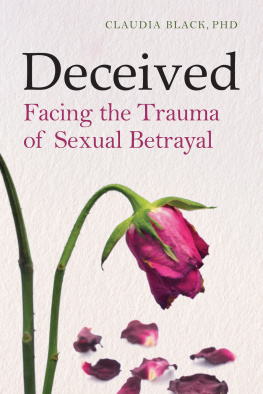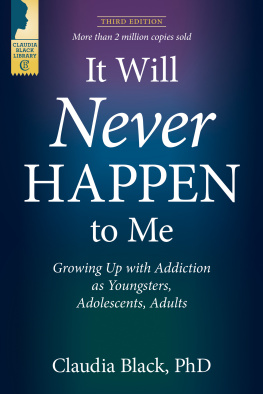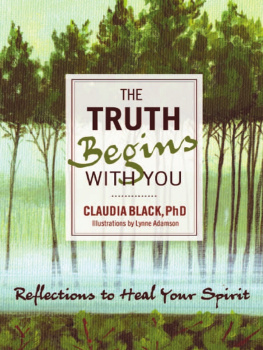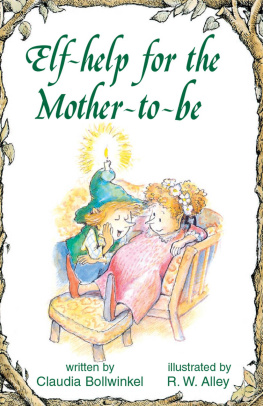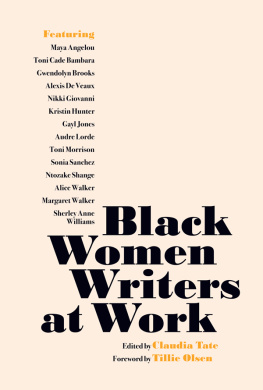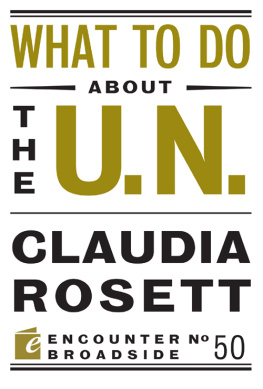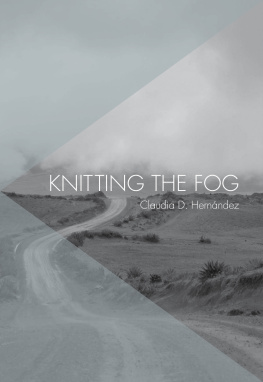Claudia Black - Repeat after me
Here you can read online Claudia Black - Repeat after me full text of the book (entire story) in english for free. Download pdf and epub, get meaning, cover and reviews about this ebook. year: 2018, genre: Religion. Description of the work, (preface) as well as reviews are available. Best literature library LitArk.com created for fans of good reading and offers a wide selection of genres:
Romance novel
Science fiction
Adventure
Detective
Science
History
Home and family
Prose
Art
Politics
Computer
Non-fiction
Religion
Business
Children
Humor
Choose a favorite category and find really read worthwhile books. Enjoy immersion in the world of imagination, feel the emotions of the characters or learn something new for yourself, make an fascinating discovery.

- Book:Repeat after me
- Author:
- Genre:
- Year:2018
- Rating:3 / 5
- Favourites:Add to favourites
- Your mark:
- 60
- 1
- 2
- 3
- 4
- 5
Repeat after me: summary, description and annotation
We offer to read an annotation, description, summary or preface (depends on what the author of the book "Repeat after me" wrote himself). If you haven't found the necessary information about the book — write in the comments, we will try to find it.
Repeat after me — read online for free the complete book (whole text) full work
Below is the text of the book, divided by pages. System saving the place of the last page read, allows you to conveniently read the book "Repeat after me" online for free, without having to search again every time where you left off. Put a bookmark, and you can go to the page where you finished reading at any time.
Font size:
Interval:
Bookmark:



Central Recovery Press (CRP) is committed to publishing exceptional materials addressing addiction treatment, recovery, and behavioral healthcare topics.
For more information, visit www.centralrecoverypress.com.
2018 by Central Recovery Press, LLC
All rights reserved. Published 2018.
No part of this publication may be reproduced, stored in a retrieval system, or transmitted in any form or by any means, electronic, mechanical, photocopying, recording, or otherwise, without the written permission of the publisher.
Publisher: Central Recovery Press
3321 N. Buffalo Drive
Las Vegas, NV 89129
23222120191812345
ISBN: 978-1-942094-78-4 (e-book)
Photo of Claudia Black by Winifred Whitfield. Used with permission.
Every attempt has been made to contact copyright holders. If copyright holders have not been properly acknowledged please contact us. Central Recovery Press will be happy to rectify the omission in future printings of this book.
Publishers Note : This book contains general information about trauma, relationships, and addiction. It represents reference material only and is not intended as medical advice. This book is not a replacement for treatment or an alternative to medical advice from your doctor or other professional healthcare provider. If you are experiencing a medical issue, professional medical help is recommended. Mention of particular products, companies, or authorities in this book does not indicate endorsement by the publisher or author.
CRPs books represent the experiences and opinions of their authors only. Every effort has been made to ensure that events, institutions, and statistics presented in our books as facts are accurate and up-to-date. To protect their privacy, the names of people, places, and institutions in this book have been changed.
Cover design and interior by Deb Tremper, Six Penny Graphics
To the women in my family.
To my grandmother, whose strength, energy, and humor I admire.
To my mother, who gave me love and the stability that allowed me to grow.
And to my sister, Jana, whose childhood and adulthood Ive had the honor to share.
Many years have passed since Repeat After Me was first written, and in spite of the years that have passed it still speaks to the heart of those wanting to heal from a troubled childhood. When I began my work over forty years ago I was working with young and adult-age people who grew up in families affected by addiction. I spoke about how one learns to not talk honestly at a very young age. You dont talk honestly because you do not think you will be believed, heard, or supported. You fear repercussions; you feel as if you are being disloyal. Or maybe you dont think there is anyone to talk to. You learn not to show your feelings, and in time you emotionally disconnect from yourself. You learn you cannot rely on others, you cannot trust them to be there for you, and some people learn to even distrust themselves. These are the infamous rules: Dont Talk, Dont Feel, Dont Trust . I spoke about the family roles that people take on to bring greater stability to their lives: the responsible hero child, the adjuster (lost) child, the placater, the acting-out (scapegoat) child. These children develop coping mechanisms that for the most part do not draw attention, and they are not seen as children in need. Often the impact of growing up in an addictive family system doesnt blatantly show itself until adulthood. Those responses carried into adulthood often morph into primary issues such as codependency, depression, anxiety, and addiction to a process or substances.
In the 1980s and 90s the issue of trauma was being recognized by myself and others pioneering the work with adult children from families impacted by addiction but without the language of trauma that has evolved since that time. Looking back I realize that Repeat After Me was and is addressing the narrative of ones trauma experience. It offers insight into naming the trauma and begins the process of grief work and the beginning of creating a new narrative for your life.
Since the original publication, we now have science that supports the value of journaling and writing exercises. Repeat After Me is based on the value of writing as a therapeutic process. Research by James Pennebaker, PhD, shows that writing about lifes stresses helps you heal from both physical and emotional ailments. Recalling memories, good and bad, comes easier when you put them down in words. Writing your stories frees up buried emotions and thoughts, giving rise to epiphanies about how you have lived your life. People solve problems while writing and become more satisfied with their circumstances. While I believe you and I have very likely known that, it is nice to see this work validated.
As you proceed to work on healing, let me offer a framework for trauma: trauma is a Greek word that means wound; a hurt or a defeat . It is not a disease or a condition. It is the body and brains response to a painful, overwhelming, or terrifying experience that overwhelms the ability to cope with the resulting rush of feelings and thoughts. Trauma freezes the moment in time and implants powerful thoughts, emotions, and physical sensations, which remain embedded in your body and brainpotentially for years or even decadesuntil the trauma is addressed and healed. It may result from events that almost anyone would find disturbing, such as a car accident, a natural disaster such as a fire or hurricane, or the witnessing of a violent act. Other traumas are not so blatant, and often go unrecognized as to the effect they can have on you. They could be things such as harsh or unfair criticism, rejection, being bullied, being shamed or demeaned, being yelled at, ignored, disrespected or discounted; betrayal, lack of empathy from a parent, unrealistic expectations, acrimonious divorce or inappropriate boundaries (too rigid, too permissive, disconnected or enmeshed). In reality, people actually experience more traumas within their own family system than outside of it. That is whom this workbook is written for.
Those who suffer trauma experience a great sense of loss. This may mean the loss of trust, connection to others, innocence, truth, reality, safety, boundaries, or the ability to feel calm or relaxed or comfortable in your own skin.
Trauma creates a repetitive and profoundly disempowering internal belief. That ultimate core belief is shame, the painful feeling that comes with the belief that who you are is not okay; you are not worthy; you are not of value.
When I first wrote Repeat After Me I referred to a four-step process for healing.
1.Explore the past
2.Connect the past to the present
3.Challenge the beliefs
4.Learn the skills
Today I have expanded these steps to be what I refer to as layers.

Grounding is essential in the healing of familial trauma. Grounding will help you stay present. Grounding skills are learnable, tried-and-true tools to help your nervous system regulate and calm the part of your brain where the flight, fight, or freeze responses dominate. Grounding skills help you to stay calm, focused, and alert so that you can feel emotions fully, process and tolerate and, when appropriate, let them go. In fact you may already practice some of them. Many are fun, pleasurable, or rewarding, and most are free or inexpensive.
Font size:
Interval:
Bookmark:
Similar books «Repeat after me»
Look at similar books to Repeat after me. We have selected literature similar in name and meaning in the hope of providing readers with more options to find new, interesting, not yet read works.
Discussion, reviews of the book Repeat after me and just readers' own opinions. Leave your comments, write what you think about the work, its meaning or the main characters. Specify what exactly you liked and what you didn't like, and why you think so.

